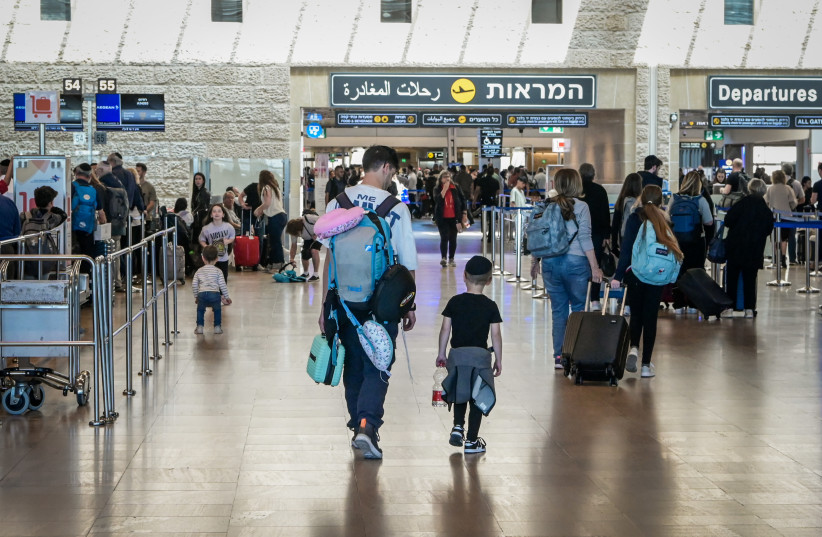Anti-judicial reform protesters should be responsible and keep roads clear near the Ben-Gurion Airport, Central District police commander Avi Biton appealed on Sunday morning before a major demonstration on Monday.
Biton said that an emergency situation, in which a United Airlines flight with hundreds of passengers suffered a broken window and had to land in Israel, demonstrated why it was essential to keep security roads open.
“I call on protest organizers: Show responsibility so that a disaster will not happen that we will regret,” said Biton. “The traffic lanes in the Ben-Gurion Airport area are defined as emergency roads and must be left open for rescue services at all times.
Biton said that protesting was a key democratic right, but public safety needed to be taken into account. The police will allow demonstrators into the airport area, but Biton said that they would not allow the blocking of roads, and will have zero tolerance for those that do.
National Security Minister Itamar Ben-Gvir said he had held a meeting with Biton and other security officials on Saturday night, and that it had been made clear that the objective was to disrupt traffic and hinder those who had purchased plane tickets. He called for the police to enforce the law and not allow protesters to act how they please.

“My policy is clear: Freedom of protest — Yes,” said Ben-Gvir. “Anarchy, roadblocks, interference with innocent citizens, paralyzing an airport and risking human life — absolutely not.”
After a meeting with the head of the airport authority, Biton agreed that the public would be able to arrive on time for flights, and the flight schedules would not be affected.
Judicial reform protest leaders attack ‘political’ airport authority
Leaders of the Kaplan protest group attacked the airport authority as having been subject to political takeover.
“It’s the right of citizens of the state to protest in every place against the dictatorship and this is exactly what will happen tomorrow,” said the protest leaders. “A non-violent democratic protest will stop the dictatorial aims of the Israeli government. We expect the Israel Police to protect the sacred democratic right to protest.”
The protest group rejected the restrictions, calling on the public to come en masse to Ben Gurion to demonstrate outside Terminal 3.
Why is the upcoming protest at Ben Gurion happening?
Protest leaders announced the Ben-Gurion protest on Tuesday, in response to the continued development of judicial reform legislation on Monday. A bill on the reasonableness standard will be discussed at the Knesset Constitution, Law and Justice Committee the same day. The bill would prevent judicial review by the court in judgments on the administrative decisions of elected officials. On Sunday, politicians discussed the possibility that the bill would be “softened” by excluding mayors.
A military veteran protest group attacked politicians for advancing the reasonableness bill and for another that would replace the Israel Bar Association with another attorney regulatory body. The group warned that the reform would weaken the Israeli legal system and result in IDF soldiers being brought before the International Criminal Court. They threatened that volunteer soldiers across the various units would protest the situation.
At the penultimate moment before the final readings for the reform’s Judicial Selection Committee bill in March, intense protests and employee strikes brought airport traffic to a close. Some IDF reservists, including pilots, also joined in strikes by refusing to attend training.
The closure of roads throughout Israel during protests has remained a contentious issue during the judicial reform period. Critics of the tactic argue that it endangers both the pedestrian protester and drivers.
The Knesset National Security Committee held a hearing on Sunday morning to review police procedures for violent protests and arrests. Committee chairman Zvika Fogel wondered if it was possible if Israel would see riots like those currently unfolding in France.
Police commander Avshalom Peled said that the police were apolitical and sought to allow protest while balancing it with the need for public peace.
“Everyone is equal before the police and enforcement is completely equal. It seems simple but it is a complicated role and the reality is complex,” said Avshalom. “No policeman leaves their house in the morning to hurt someone.”
Peled said that the police had treated protesters with restraint and professionalism, and dispersion measures occurred not in laboratory conditions but in chaotic environments.